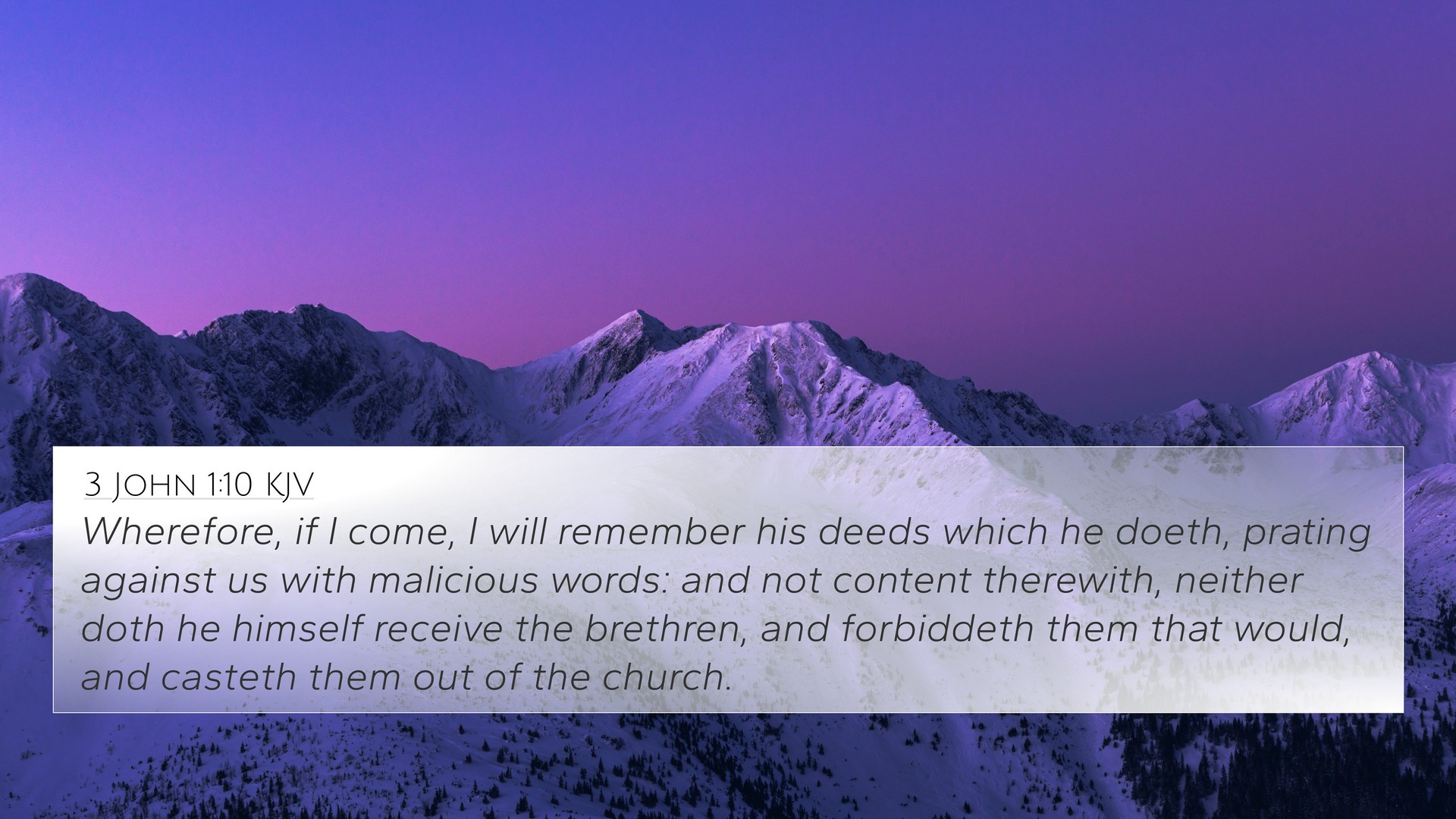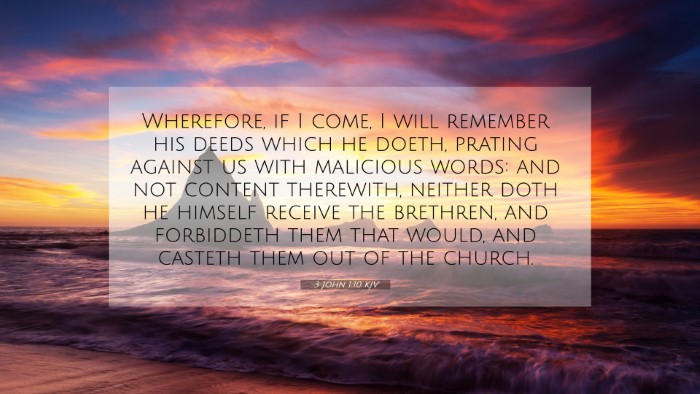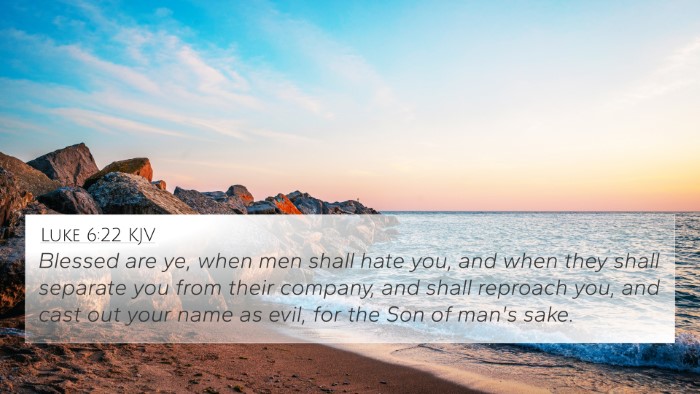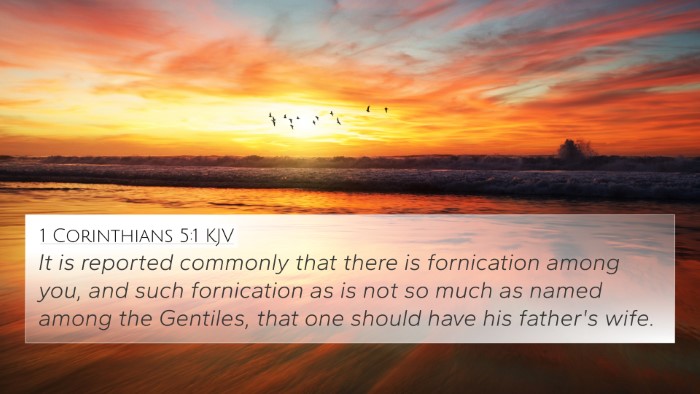Understanding 3 John 1:10
Verse: 3 John 1:10 - "So if I come, I will call attention to what he is doing, spreading malicious nonsense about us. Not satisfied with that, he even refuses to welcome other believers. He also stops those who want to do so and puts them out of the church."
Summary of the Verse
This verse highlights the actions of a man named Diotrephes who opposes the apostolic authority of John and spreads false accusations against him and his fellow workers. The passage reflects on the detrimental effects of pride and authority within the church, as well as the importance of hospitality and support for other believers.
Commentary Insights
-
Matthew Henry:
Matthew Henry points out that Diotrephes represents a spirit that seeks to dominate and control others within the church, rejecting the authority of the apostle. This displays the danger of pride in leadership that can lead to division among believers.
-
Albert Barnes:
Albert Barnes elaborates on the point that Diotrephes not only opposes John but also exerts influence to prevent others from assisting and welcoming fellow Christians. His actions disrupt the unity of the church and exemplify selfish ambition.
-
Adam Clarke:
Adam Clarke emphasizes the broader implications of Diotrephes's actions, indicating that such behavior can lead to the exclusion of true believers from the community of faith. He calls attention to the importance of embracing rather than rejecting fellow believers.
Bible Cross-References
To gain a deeper understanding of 3 John 1:10, we can identify several related verses in the Bible:
- 1 Timothy 5:20: Discusses the rebuke of sinfulness among leaders, showing that accountability is essential within the church.
- Titus 3:10: Highlights the need to reject divisive individuals, aligning with John's admonition against Diotrephes.
- James 4:6: Reminds us that God opposes the proud but gives grace to the humble—a concept relevant to the pride of Diotrephes.
- Matthew 20:25-28: Jesus teaches about servant leadership, contrasting the type of leadership that Diotrephes exemplifies.
- Philippians 2:3: Encourages humility and valuing others above oneself, opposing the actions seen in 3 John.
- Hebrews 13:2: Stresses the importance of hospitality towards strangers, which Diotrephes fails to recognize.
- Romans 16:17: Paul warns against those who cause divisions, similar to Diotrephes's behavior in the local church.
Thematic Connections
The themes found in 3 John 1:10 resonate with several major biblical concepts:
- Leadership and Accountability: The Bible repeatedly emphasizes the importance of integrity in leadership (1 Timothy 3:1-7).
- Community and Hospitality: Christian fellowship requires welcoming others (Hebrews 10:24-25).
- Pride and Humility: The need for humility in Christian service is a recurring theme (Proverbs 16:18).
- Discipleship and Support: Supporting fellow believers is vital for growth in faith (Galatians 6:2).
Insights on Community Dynamics
The conflict presented in 3 John can serve as a cautionary tale about the dynamics that exist within church communities. Diotrephes’ refusal to welcome others reflects the close-knit nature of church life, where hospitality signifies acceptance and unity. Pursuing personal agendas at the expense of community well-being is a grave concern echoed throughout the Scriptures.
Conclusion
3 John 1:10 serves as a stark reminder of the challenges in maintaining unity and humility within the church. By examining the verse through the lens of various commentaries, the cross-references, and thematic connections, we can better understand the importance of aligning ourselves with Biblical teachings that emphasize love, service, and community over pride and division.












